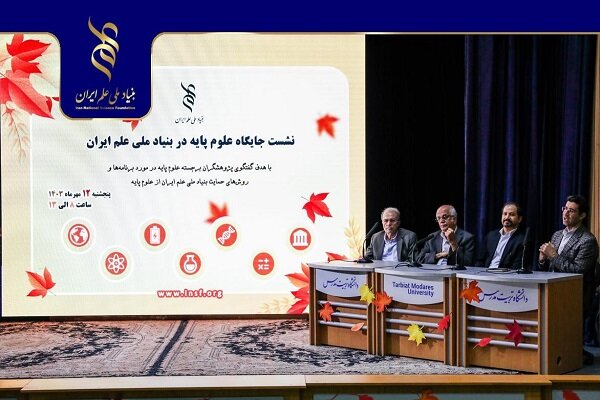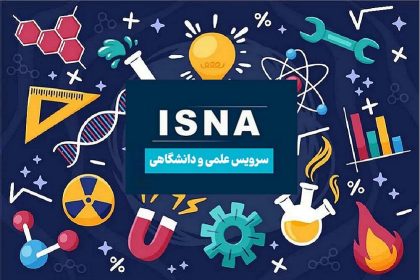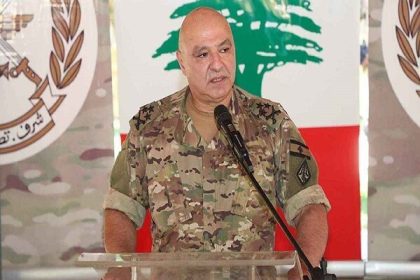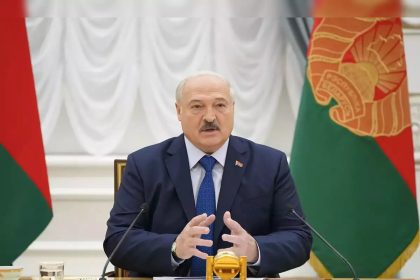According to the , citing the National Science Foundation of Iran (INSF), the meeting of “Basic Science Center in the National Science Foundation of Iran” was held in order to commemorate the National Day of Basic Sciences (honoring Abu Rehan Biruni) and with the purpose of a discussion among prominent researchers of basic sciences in Shahid Motahari meeting hall. Tarbiat Modares University was held on the programs and methods of support of the National Science Foundation of Iran for basic sciences.
Ali Mohammad Soltani, the president of the National Science Foundation of Iran, gave a speech and said: “In the past days, we witnessed bitter and sweet events that we should mention at the beginning of this ceremony.” The Tabas mine incident, the martyrdom of the commanders of Lebanon, and especially the martyr Seyed Hassan Nasrallah, who was a gem for us; These events guide us to what we should pursue in the world.
He explained about the timing of this meeting: 13 Shahrivar was the day of commemoration of basic sciences, which coincided with the month of Safar and then the start of the academic year, so it was decided to hold this meeting in the second week of October. In fact, this ceremony is a celebration of basic sciences and we hope to have this program in the coming years.
The president of the National Science Foundation of Iran continued: Research is the root of a tree that we usually don’t see. While the leaves and fruits of the tree attract our attention. Basic science research is more important for them. If today we see that a company has grown from university activities and is successful in the market, we should pay attention to its activity history in the past years.
Referring to the change in the statute of the National Science Foundation of Iran, he said: “A few months ago, we saw the change of the logo of the National Science Foundation of Iran, and the statute of this institution was also changed.” Our main goal in the foundation is to build capacity to advance the frontiers of knowledge, achieve scientific authority and excellence in the country, promote science in society and promote it, and create capacity to solve major problems and provide new solutions.
Soltani stated: In terms of the number of basic science plans, 32% of the basic plans and 39% of the foundation’s credits have been allocated to it, which shows that basic science professors are more familiar with the National Science Foundation of Iran than other professors. This is despite the fact that humanities professors are not familiar with the foundation and do not cooperate.
He continued: “Fortunately, we have gone from a fund that provided support for researchers to an institution called the National Science Foundation of Iran, which was able to provide good grants for research.” In addition, our budget has increased five times in total, despite the decrease at some point of time, and the vice-chancellor of science and technology also supports this institution well.
Facilitating the possibility of obtaining support for the country’s best researchers
The president of the National Science Foundation of Iran explained: The National Science Foundation of Iran does not currently have a shortage of funds and we would like to announce this to the professors that we do not have a shortage of funds and we accept your plans. Of course, in the National Science Foundation of Iran, we have a 20-80 division, according to which, 80% of the support is based on the program and call, and 20% is allocated to the received projects as in the past. These calls include moving at the frontiers of knowledge, quantum technology, multidisciplinary clusters, collaboration between basic and other sciences, and emerging products. Some of these calls are also in the international field.
Soltani explained about the budget distribution ratio: This ratio is determined based on the effectiveness in the country and this percentage is based on the priority of effectiveness in the country. Our priorities at the National Science Foundation of Iran are the possibility of obtaining support for the country’s best researchers and the efforts of all researchers to obtain support from the National Science Foundation of Iran, etc.
Welcoming researchers to basic science calls
He explained the contribution of basic sciences to the plans of the National Science Foundation of Iran and said: calls were given in the field of basic sciences, which were fortunately well received, and for the call for which only 15 plans are accepted, about 250 plans are sent.
The head of the National Science Foundation of Iran said about the goals of this meeting: One of the goals of this program is that the professors help us in what to do so that we can see significant progress and changes in the field of basic sciences in the next five years. I want the professors to consider the National Science Foundation of Iran as their home after the university and to express their opinions and suggestions.
Holding a scientific round table with the presence of Ali Akbar Mousavi Mohadi, a member of the board of trustees of the National Science Foundation of Iran, Peyman Salehi, the research deputy of the Ministry of Science, Research and Technology, and Saeed Semnanian, the head of the Research Institute of Cognitive Sciences of Basic Knowledge, were among the other programs of this meeting.
We need a correct redefinition of basic sciences
Pointing to the necessity of redefining basic sciences, Mousavi Movahdi said: The first thing I see as important in the subject of basic sciences is its correct definition. In the minds of researchers, basic science is limited to the disciplines of physics, chemistry, geology, biology, and mathematics, while basic science is the knowledge that allows us to access the existential gems of science.
He continued: In principle, I am not saying that basic science is not practical, but the originality of basic science is not practicality, but it should research quantum, neuron, and bit, and it should go to split the atom.
He added: The basic flow of science is human power. In physics, chemistry, biology, geology, and mathematics, precision instruments are important, but many times more important is a well-developed human force. Apart from the discussion of IQ, human power requires IQ and the power of stability and resistance in the depths of science.
This prominent researcher continued: Let’s turn the pieces of basic science into games and stories. The Science Foundation should either order this method or employ knowledge-based companies to promote basic sciences and should beautify basic sciences in the form of games, stories, and animations.
He clarified: We have memes next to genes. Mem means the seed of thought and civilization, and we have Mem Abu Rihan Biruni and Ibn Sinara, and we should focus on these seeds.
Demand of the National Science Foundation of Iran from basic science researchers
Saeed Semnanian, as the last speaker of this round table, emphasized: The world regularly observes what has been done scientifically in the country, and they also observe in Europe that we have published enough articles. This observation is necessary for growth and planning, and it is necessary to see where we are and what position we have.
He clarified: This meeting is a consensus in the field of basic sciences, because we do not have good conditions in basic sciences and graduates of basic sciences of prestigious universities are not chosen as future teachers. Therefore, I suggest that in the field of promoting international cooperation in the field of basic sciences, if a plan is given, the National Science Foundation of Iran should also make demands so that we can see progress in this field.
Contemplation and appreciation of top researchers
At the end of this meeting, the top professors and researchers of the working group of basic sciences and biological sciences were honored. The names of the winners are as follows:
“Alireza Chermehini”, professor of Isfahan University in the field of chemistry, with a plan to prepare alkyl levulinates using the reaction of phorfoyl alcohol and alcohols on Hamed acid catalysts
“Majid Rezaei Wala” from Hamadan University of Technology in the field of chemistry with the title of rational design, synthesis, identification and investigation of catalytic activity and anticorrosive behavior of some oriental compounds of morpholine
“Majid Mastri Farahani” from Khwarazmi University in the field of chemistry with the project of clean synthesis of valuable fuels and fuel additives using catalysts and recoverable stable solvents
“Saeed Shahrukhian Dehkordi” from Sharif University in the field of chemistry with the title of development of two-factor catalysts with high performance based on two-dimensional nanostructures of metal-alloy networks grown on metal nitride oxide nanowires for use in reactions related to the electrochemical separation of water
“Sharifeh Rezaei” researcher of the postdoctoral project
“Mohammed Bagheri Qolivand” from Razi University in the field of chemistry is responsible for the post-doctoral project with the design of counter electrodes based on compounds of transition metals doped with anions for the manufacture of color-sensitive solar cells.
“Mohin Mirzaei” researcher of the postdoctoral project
“Behrooz Shabani” from Tabriz University in the field of chemistry with the design and synthesis of nano biocomposite based on graphene oxide functionalized with calix 4 arene hydrogen alginate silicic protein fibroin and bimetallic magnetic nanoparticles and investigating their biological properties
“Ehsan Bahjeb Nowrozi” researcher of the postdoctoral project
“Ahmed Homaei” from Hormozgan University in the field of biology, biochemistry, professor, doctoral dissertation with the design and synthesis of new didemeric nanocarriers based on chitosan biopolymer and their comparison in the feasibility of releasing recombinant L-asparaginase enzyme purified from Pseudomonas
“Sudabeh Irani Nesab” PhD student
“Mohammed Dinari” from Isfahan University of Technology, in the field of chemistry, professor, PhD thesis with the design of synthesis and characterization of new magnetic porous polymers in order to remove heavy metals and colored wastes
“Nazanin Taheri” PhD student
“Alireza Abbasi” from the University of Tehran in the field of chemistry, professor, doctoral thesis with the design of post-synthetic modification of stable organic metal frameworks MIL and UIO and their photocatalytic application under visible light
“Mahdia Sadat Hosseini” PhD student
Also, “Yasser Abdi”, “Ali Asghar Ensafi” and “Masoud Amanlou” were also introduced as the three selected judges of this meeting.
RCO NEWS

















